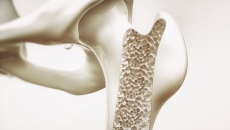NEW YORK (AP) — It starts with a Post-it note scrawled with a reminder. Then a chocolate bar you'll probably eat later. An extra charging cord or two find their way into the mix, along with a laptop, a folder full of projects, a lanyard from a recent conference and a permission slip sent home from school.
And soon, the pile of things on your desk that are set aside for later becomes a giant, overwhelming stack.
The chaos of modern life and the ease of accumulating cheap items through online shopping have contributed to an abundance of clutter. That's true in home offices andtraditional workspaces alike. And those jumbles of misplaced belongings can drain our mental resources, distracting us from work and dragging down our productivity.
“Clutter reduces our bandwidth. It negatively affects our perception of our environment or ourselves,” said Marietta Van Den Berg, psychiatrist and medical director for Surrey Memorial Hospital in British Columbia. “It influences whether we make good choices or not. And it even influences our levels of stress and our levels of sleep.”
Researchers at UCLA found that women who were living with a high density of household objects had high levels of the stress hormone cortisol.
As households and workplaces embark on spring cleaning, it's possible to reduce clutter and find more mental peace.
“Things circulate into our lives all too easily. We need a competitive plan for things to circulate out,” said Matt Baier, owner of Matt Baier Organizing in Stamford, Connecticut. “A good example of that is buying on Amazon. It’s so easy. Boxes come in. We have so many houses that are just piled with boxes, opened and unopened, things that need to be returned, boxes that need throwing out.”
A pile of postponed decisions
There are many reasons we accumulate clutter. Sometimes we don't know where to put whatever's landed in our hands. Other times a paper represents a task — whether it's paying a bill or making a phone call — that we can't tackle right away.
“Clutter is actually just a postponed decision or action,” Van Den Berg said. “It’s things we pick up and put down. So we’re not making a decision about that piece of paper on your desk, or that book.”
Taking a minute to put an item away in its proper place can save time in the long run. The paper that requires a phone call can go into a bin labeled “Action Items."
“If everything’s chaotic and you can’t find anything, you’re not bringing your best self to work,” said Renee Brown, owner of Renee Brown Organizing, based in Minneapolis.
Making time for decluttering
A messy workspace can be intimidating. But you don’t have totackle it all in one day, Brown said. Committing to small decluttering sessions over the course of a week or months can make a difference.
“ Look at your schedule. Can you find 15 minutes or 30 minutes and block it?” Brown asked. If you have more time, spend an hour. Set a timer and see how much you can get done, she advised.
Some workplaces are setting aside time for employees todeclutter their files and email inboxes weekly or quarterly, said Jenny Albertini, owner of Decluttered by Jenny, who works with individual and corporate clients.
“It’s OK to spend an hour a week or however much you needto declutter your inboxes, organize your files," Albertini said. “Having that time scheduled in is what makes people feel accountable.”
Employees can gather on Zoom to support each other while decluttering, she said.
Start by sorting
Many professional organizers suggest sorting objects of the same category together. That way, you can see how much of each group you have and let go of any extras. After gathering office supplies, you may find you have more staplers or charging cords than you'll ever need.
And with the full picture, Albertini said, "we can suddenly say, ‘Oh, I didn’t realize I kept buying extra pens, because some were in this drawer, and some were over in this cup, andsome were in that shopping bag on the floor.'”
Baier, who demonstrates decluttering strategies on YouTube, recommends sorting on a clean surface such as a folding table. Set up bins for trash, recycling and papers to shred. Bankers boxes are convenient for sorting, and you can label them with sticky notes for categories such as electronics, office supplies and keepsakes, he said.
Label one box “elsewhere” for items that belong in a different room; but distribute them later so you don’t get distracted, Baier said.
Once you’ve sorted items into categories, then go through each box to eliminate what you don’t need.
Tackling piles of papers
When facing a mass of paperwork, consider whether you're legally required to keep certain files, and then ask, “when was the last time you used this document?” Albertini said.
“Do you have anything coming up that you know you need it for? Is this hard copy the only one? Would you be able to doyour work or task if you didn't have this anymore?" she said.
Baier recommends dividing papers into four groups: running files, which you need to act on; sitting files, which you need toaccess regularly; sleeping files, which you need to keep just in case but can store remotely; and dead files, which you no longer need.
“Identify why you keep the files, because when you’re clear on why you keep something, it takes you to where it should go,” Baier said.
With a paper decluttering system in place, you can repeat it annually and it should only take about 20 minutes, he said.
Digital decluttering
When organizing digital files, take the same approach as paper: Sort into categories, then reduce. Work in short bursts of time to prevent decision fatigue, Albertini said.
“We’re really looking to deduplicate items or reduce the number that you have that really aren’t that special,” Albertini said.
With presentations, delete drafts and keep the final product. If you have photos of an event, choose the best two or three and delete the rest. With email, ask yourself, “Will I need this email again to get my job done? Will it provide knowledge or motivation for future work?” If the answer is no, delete it, Albertini said.
In some email programs, you can automatically send mail from a specific client or team into a folder. If you have thousands of unread emails, you can move those to a digital archive at the end of the year, Brown said.
Think before you buy
One obvious way to reduce office clutter is to buy fewer things. It can be tempting to buy drawer dividers or trays toorganize pens and scissors. But another route is to reuse cardboard iPhone or greeting card boxes.
“You don’t have to go out and get expensive items,” Brown said. “Let’s find what you already have in the house and use it instead.”
Picture Courtesy: AP Illustration / Annie Ng






